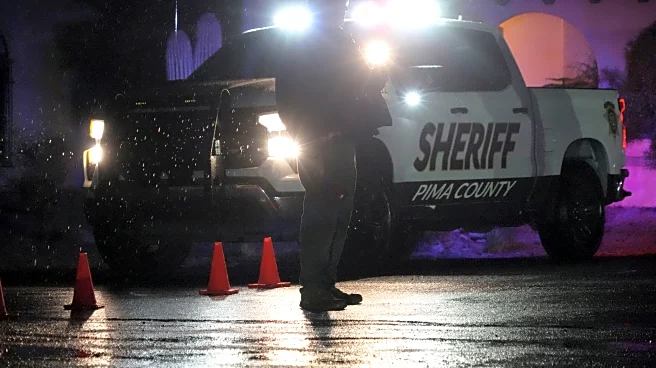Rapid Read • 8 min read
House Speaker Mike Johnson has pushed through a megabill in Congress that includes significant cuts to Medicaid, potentially affecting thousands of residents in his rural Louisiana district. Over a third of the district's population relies on Medicaid for health coverage, and the cuts could lead to the closure of federally qualified health centers that depend on Medicaid reimbursements. The new law requires adults aged 19 to 55 to prove they are working, volunteering, or receiving job training for at least 80 hours a month to maintain coverage. This has raised concerns among constituents who may struggle to meet these requirements due to irregular work schedules. The Congressional Budget Office estimates that the changes could result in nearly a trillion dollars in cuts, affecting 12 million people nationwide.
AD
The Medicaid cuts proposed by Speaker Johnson could have profound implications for healthcare access in Louisiana, particularly in rural areas where poverty and chronic illness are prevalent. Federally qualified health centers, which provide essential services to underserved communities, face financial challenges that could lead to closures or reduced services. This would exacerbate healthcare disparities and limit access to medical care for low-income residents. The cuts also threaten the progress made in reducing Louisiana's uninsured rate since Medicaid expansion in 2016. The potential loss of coverage and healthcare facilities could have long-term negative impacts on public health and economic stability in the region.
Congress faces a deadline to reauthorize funding for community health centers by September 30. Advocates are pushing for an additional $1.2 billion to offset the anticipated $7 billion loss due to Medicaid cuts. The outcome of these negotiations will be crucial in determining the future of healthcare access for Louisiana residents. Without additional funding, many health centers may be forced to shut down or reduce services, further jeopardizing healthcare access in rural areas. The situation calls for bipartisan support to ensure continued funding and prevent a healthcare crisis.
The Medicaid cuts highlight broader ethical and policy debates about healthcare access and the role of government in providing social safety nets. The changes could lead to increased health disparities and economic challenges for vulnerable populations. The situation underscores the need for comprehensive healthcare reform that addresses the needs of low-income and rural communities while balancing fiscal responsibility.
AD
More Stories You Might Enjoy











